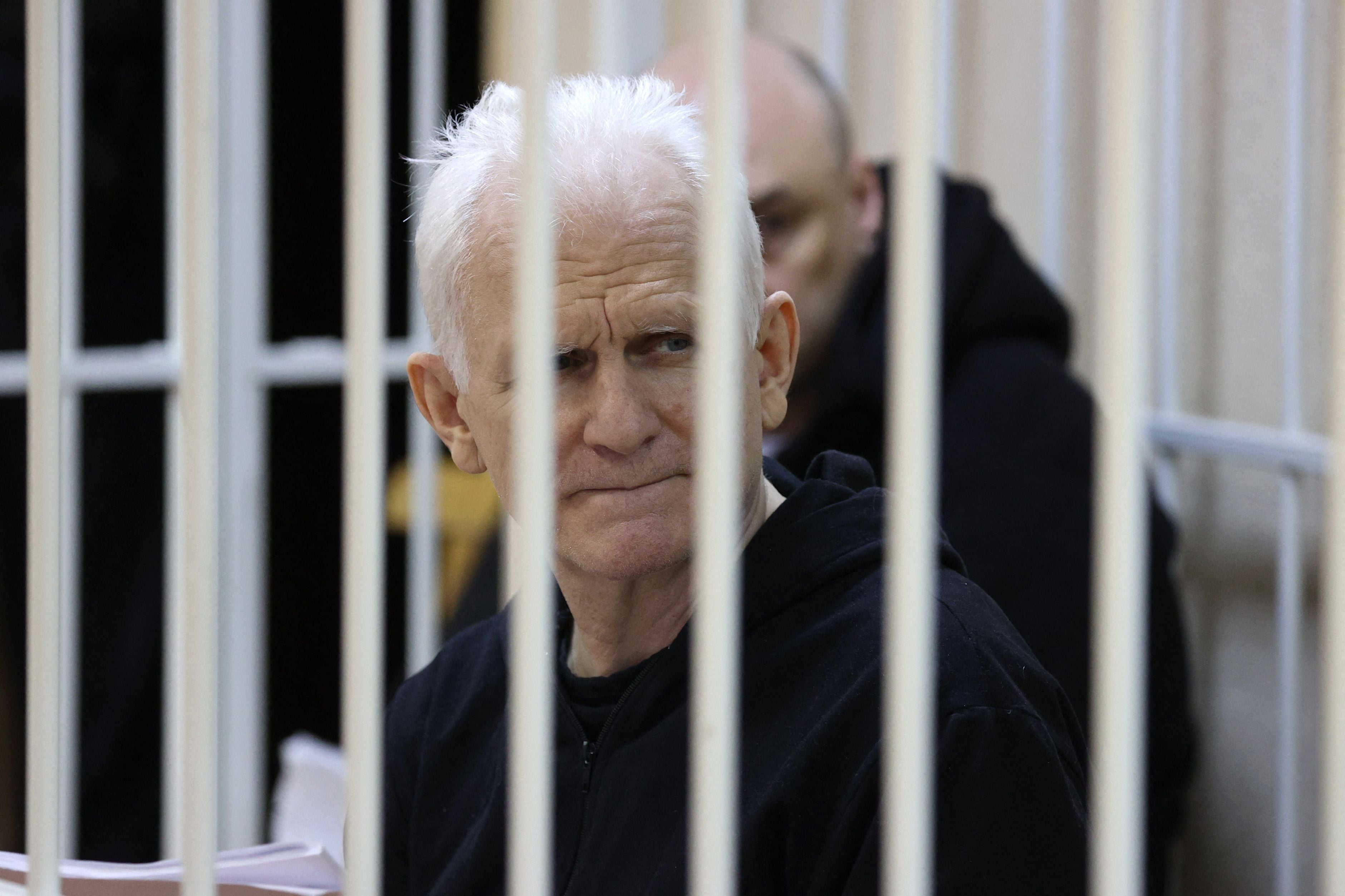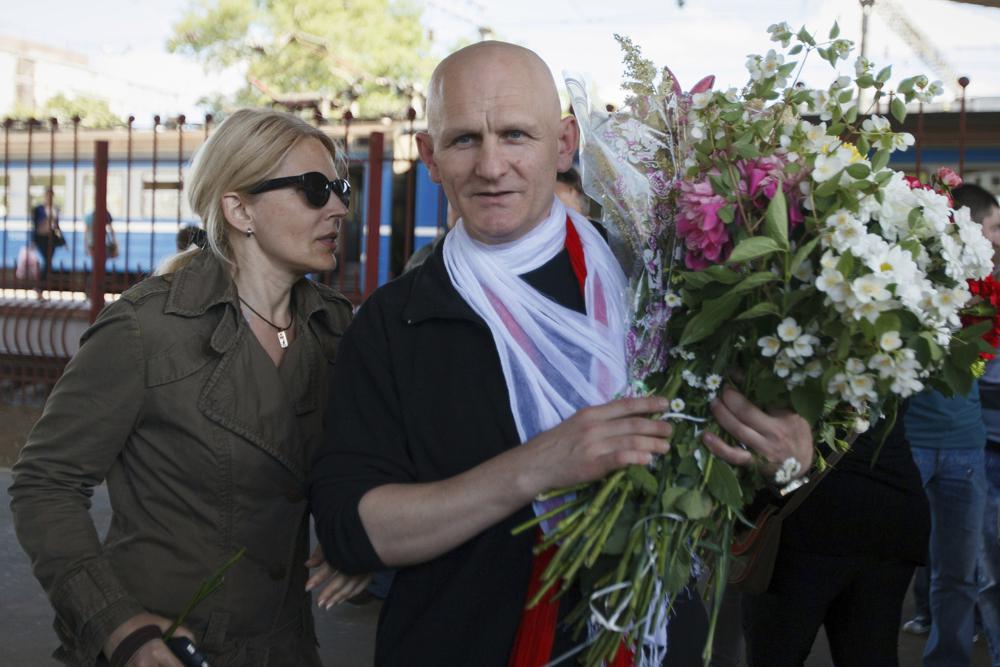Nobel Prize-winning human rights advocate Ales Byalyatski goes on trial in Belarus
Allies say charges against Mr Byalyatski are politically motivated. He is among hundreds detained during protests against the re-election of president Alexander Lukashenko in 2020

Your support helps us to tell the story
From reproductive rights to climate change to Big Tech, The Independent is on the ground when the story is developing. Whether it's investigating the financials of Elon Musk's pro-Trump PAC or producing our latest documentary, 'The A Word', which shines a light on the American women fighting for reproductive rights, we know how important it is to parse out the facts from the messaging.
At such a critical moment in US history, we need reporters on the ground. Your donation allows us to keep sending journalists to speak to both sides of the story.
The Independent is trusted by Americans across the entire political spectrum. And unlike many other quality news outlets, we choose not to lock Americans out of our reporting and analysis with paywalls. We believe quality journalism should be available to everyone, paid for by those who can afford it.
Your support makes all the difference.Nobel Peace Prize laureate Ales Byalyatski has gone on trial in Belarus, facing up to 12 years in jail on charges his allies say are politically motivated.
Mr Byalyatski, who co-founded the Viasna human rights organisation, faced court alongside two other representatives of the group. All pleaded not guilty. All three face from seven to 12 years in jail on charges of financing protests and smuggling money.
The 60-year-old is among hundreds of Belarusians who were detained during a violent crackdown on anti-government protests by authoritarian president Alexander Lukashenko in the summer of 2020.
Mr Byalyatski, who shared the Nobel Peace Prize with Russian rights group Memorial and Ukraine’s Centre for Civil Liberties in October, was arrested in 2021 along with two co-workers from Viasna.
Mr Byalyatski has not commented on the allegations publicly and his lawyer is prohibited from disclosing information about the case. Television footage from the courtroom showed the three men seated on benches inside a metal cage, handcuffed and in silence as proceedings began. They were later adjourned until Friday.
A fourth activist who fled Belarus is being prosecuted in absentia in the same case.
Viasna said on Twitter that the judge had refused to conduct the trial in Belarusian instead of Russian, and rejected Mr Byalyatski’s request for a translator. It also did not consider a request to remove the handcuffs.
Some 30 people had appeared outside the court, including Western diplomats, but most were not allowed inside.
The group took a leading role in providing legal and financial assistance to hundreds of Belarusians who were jailed during mass protests that erupted when long-time leader Mr Lukashenko, in power since 1994, claimed a landslide election victory in 2020. Nations from across the world have condemned the way in which that election was conducted and rejected the results.

"The allegations against our colleagues are linked to their human rights activity, the Viasna human rights centre’s provision of help to the victims of politically motivated persecution," Viasna said of the case.
Campaigners estimate there are around 1,500 political prisoners in Belarusian prisons. Around 50,000 people have been detained for taking part in protests or criticising the authorities since 2020, they say.
Maria Kolesnikova, another high-profile opposition activist, was jailed for her role in the protests, in a case that made headlines around the world. In 2021 she was sentenced to 11 years in prison. She also said the charges against her had been trumped up for political purposes.




Join our commenting forum
Join thought-provoking conversations, follow other Independent readers and see their replies
Comments